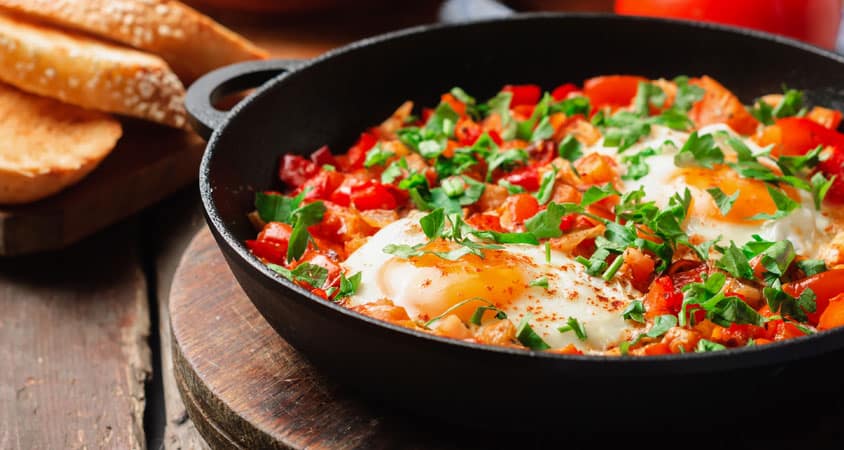If you took a poll of the more than 4 million tourists who visited Israel last year, many would likely admit they were there for the stellar cuisine—as well as the biblical and historic sites.
Influenced by its proximity to the Mediterranean Sea, and blending Jewish and Arabic traditions, Israeli cooking has a diverse, undefinable flair. And according to the San Francisco-based restaurant and hospitality consulting firm AF&Co., Israeli cuisine was dubbed the newest food trend to watch for in 2018…and quite possibly beyond.
Hummus, falafel, Israeli salad, shakshuka, shawarma—all rustic, simple dishes common to the Israeli lexicon—are served in restaurants, home kitchens, and even food trucks across the world.
With more Israeli-influenced restaurants coming across the pond and popping up stateside, it’s easy to wonder: what’s behind this Israeli food boom? It is really about another trend: the desire for healthy, easy-to-prepare, wholesome food with lots of flavor. But in order to understand the trend, we must examine its roots.
In 1948, Israel became the first Jewish state in 2,000 years, and with that change, a new culinary landscape emerged. The infant state was flooded with approximately 100,000 immigrants per year, comprised not only of displaced Holocaust survivors, but of Jewish people from all over the world. Naturally, each group brought its own cuisine, and styles of preparing and eating food. As Israel’s economy began to flourish, so did the quality and variety of available foods.
Over the past 20 years, Israelis have become open to new experiences in travel and food, spending time studying and working in different cultures and returning home with new culinary experiences. However, despite their international influence, Israeli chefs consistently demonstrate a link to the foods of the Old Testament as an homage to their beginnings. Grapes, chickpeas, lentils, and dates are only a few of the ancient elements of signature dishes that are incorporated into the native cuisines of its ever-evolving immigrant populations.
We invite you to join us for a taste of Israel on your tour to the Holy Land.








